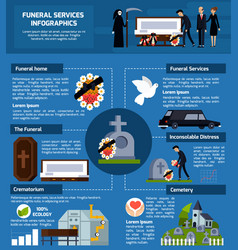Taking A Look At The Deep-Rooted Background And Consistent Effect Of Catholic Schools Internationally
Taking A Look At The Deep-Rooted Background And Consistent Effect Of Catholic Schools Internationally
Blog Article
Authored By-Eskesen Cleveland
When you consider the history of education, Catholic colleges stand apart for their ingrained customs and long-term influence. These organizations started as a means to instill faith and worths, however they've adjusted extremely over centuries. Today, they play a vital duty fit not just academic success but also moral integrity. What's interesting is exactly how they've handled to thrive in the middle of changing cultural landscapes, raising questions regarding their future relevance and effect.
The Origins of Catholic Education And Learning: A Historical Point of view
Catholic education traces its origins back over 1,500 years, when early Christian areas recognized the need for structured learning. You'll find that these communities intended to hand down their faith and worths with education.
Monasteries and cathedral schools became facilities of knowing, nurturing both spiritual and intellectual growth. As you dig much deeper, you'll see that the educational program commonly included philosophy, theology, and the liberal arts, made to form versatile individuals.
In time, the Church developed much more formal organizations, guaranteeing that education remained obtainable to all. The commitment to teaching ethical values and promoting a feeling of neighborhood has actually persisted with the centuries, shaping the educational landscape and influencing countless lives worldwide.
This long-lasting tradition continues to inspire Catholic education and learning today.
The Evolution of Catholic Colleges With Social Contexts
As societies progressed, so did the duty of Catholic schools, adapting to the cultural contexts in which they existed. In the very early years, these establishments focused primarily on religious direction, however as communities branched out, they began to integrate regional languages, custom-mades, and academic needs.
You would certainly observe that Catholic colleges often came to be facilities for social communication, fostering a sense of belonging among trainees from various backgrounds. In several areas, they addressed social issues, such as poverty and discrimination, by supplying available education and learning for all.
As you check out different cultures, you'll see how Catholic colleges have actually changed their curricula and training approaches, reflecting the values and difficulties of their settings while remaining true to their foundational goal of faith and academic excellence.
The Modern Duty and Impact of Catholic Schools in Culture
In today's world, Catholic colleges play a vital function in shaping not simply the academic landscape, however additionally the more comprehensive community.
Elementary College prep schools Near Suttons Bay 'll locate that these organizations emphasize worths like regard, concern, and social justice, cultivating all-round people who add positively to society. By concentrating on academic excellence and moral development, Catholic schools prepare pupils for future difficulties, supporting vital reasoning and management abilities.
They frequently offer varied populaces, connecting voids in access to quality education. In addition, you might see their dedication to service, encouraging trainees to engage in neighborhood outreach and volunteer work.
This blend of education and ethical support makes Catholic colleges a significant force, growing liable residents that can impact their communities for the better.
Conclusion
Finally, Catholic colleges have an abundant history that's shaped their long-lasting influence on society. You've seen how they have actually adjusted to numerous social contexts while preserving a dedication to faith, worths, and scholastic excellence. Catholic high schools Near Glen Lake , they remain to play an essential function in promoting community, promoting social justice, and nurturing liable citizens. As you review their legacy, it's clear that Catholic schools continue to be a powerful force for favorable change in the world.
